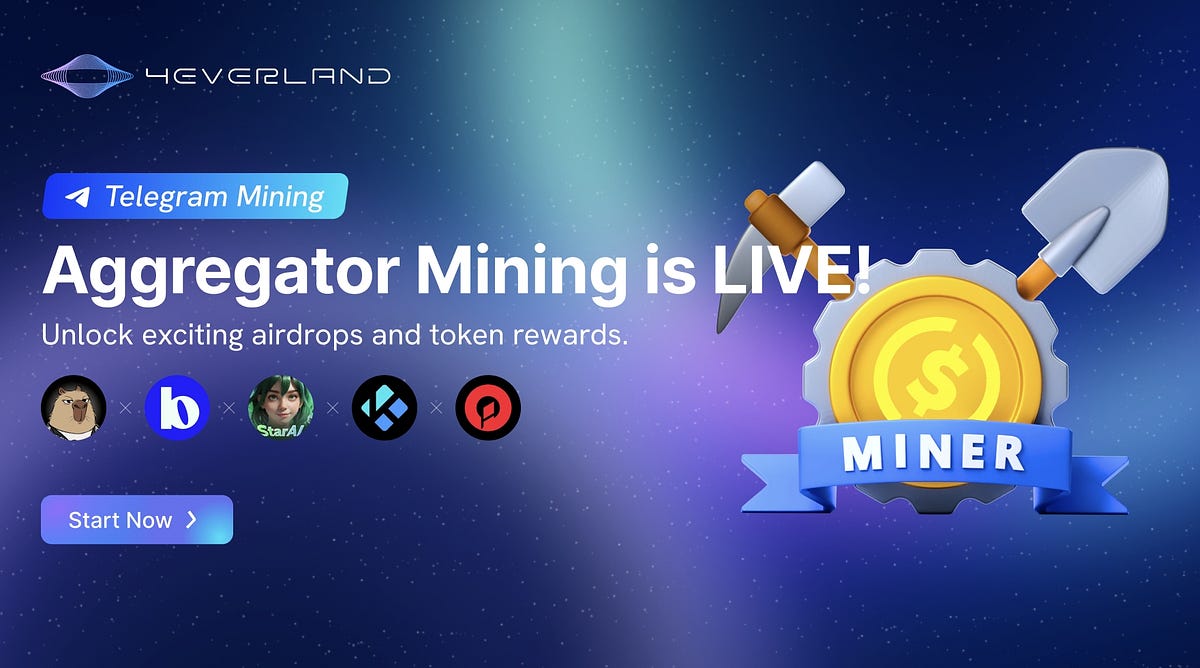4EVERLAND Launches Innovative Aggregated Mining Feature

4EVERLAND has officially launched its Aggregated Mining feature, which allows users to engage in barrier-free mining through the 4EVERLAND TG MiniApp. This innovative functionality connects users with various projects within the 4EVERLAND ecosystem, enabling them to earn airdrops and token rewards effortlessly. Aggregated Mining is designed to lower the entry barriers for participation while providing project teams with a means to enhance user engagement and incentivization. By utilizing this feature, users can maximize their earning potential and foster beneficial interactions across multiple projects.
Participating in Aggregator Mining is simple and consists of three main steps. First, users must activate the 4EVER Boost in the MiniApp, which is essential for first-time miners. Next, they can select a collaborative project and complete specific tasks, such as following social media accounts or engaging with project content. Once these tasks are completed, mining for the chosen project is automatically activated. Finally, users should log in daily to collect their mining rewards, with the option to complete additional tasks for increased output. It is crucial to claim rewards regularly, as failure to do so may pause the mining process.
To enhance earnings, users can take advantage of several tips, including activating all three core Boost modules—Storage, Compute, and Network—and staking 4EVER tokens for additional rewards. The introduction of interactive elements, such as point-stealing and strategic card purchases, adds a gamified experience to mining. 4EVERLAND has partnered with notable projects like Capybara, BitPlay, and Star AI to enrich the mining experience, making it both rewarding and engaging. Users are encouraged to explore the 4EVERLAND TG MiniApp and unlock the potential of Aggregator Mining today.
Related News





